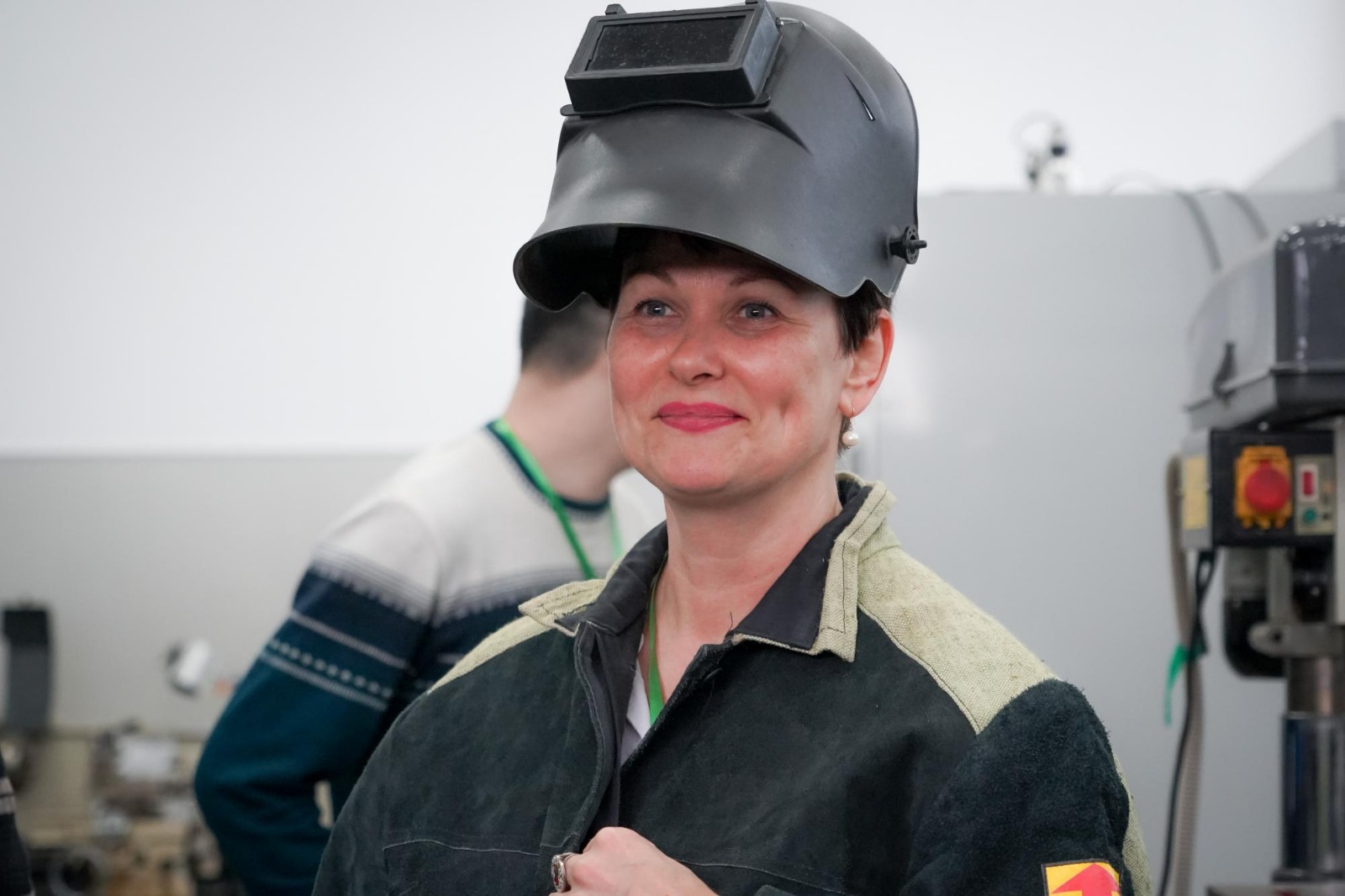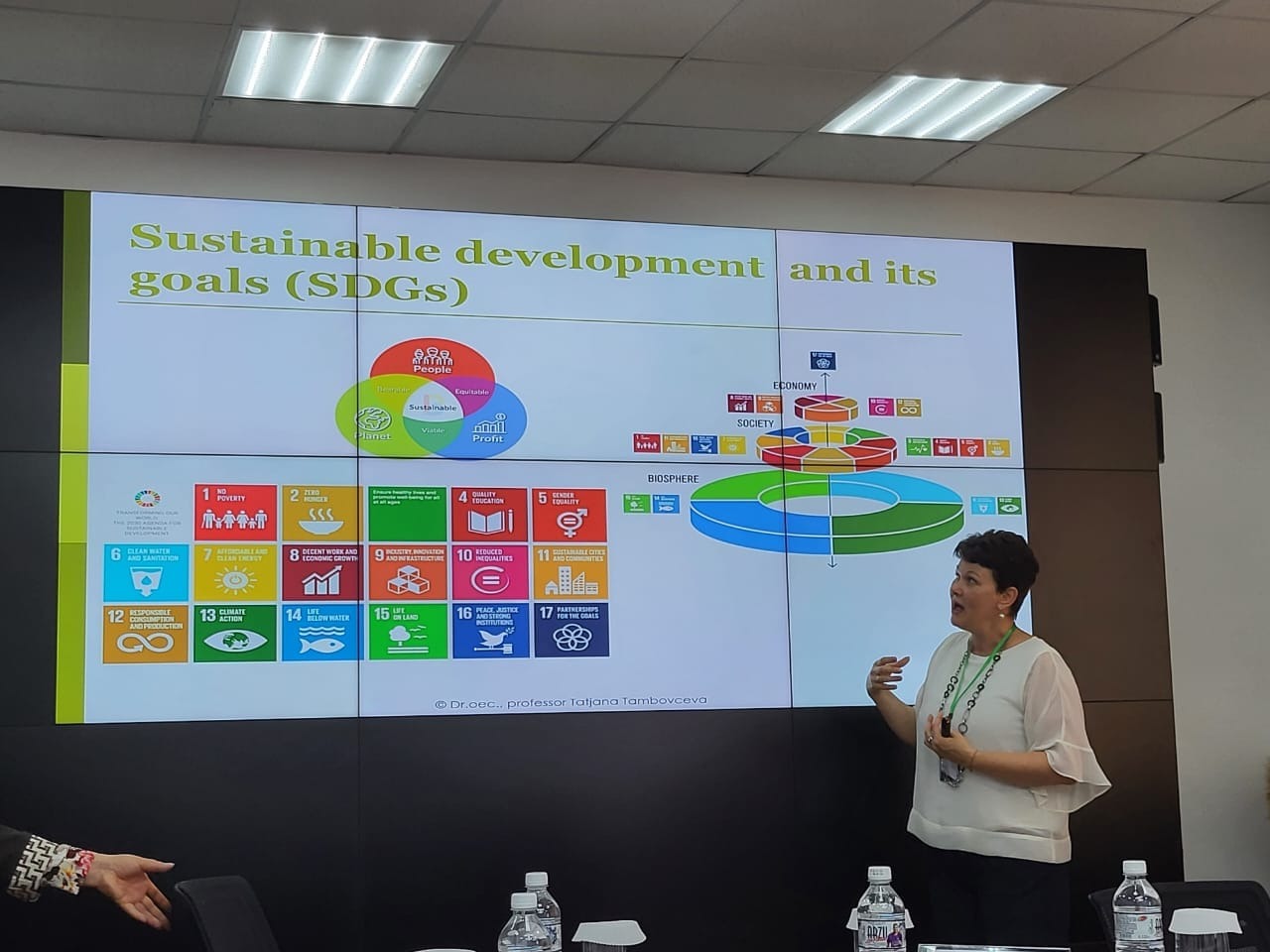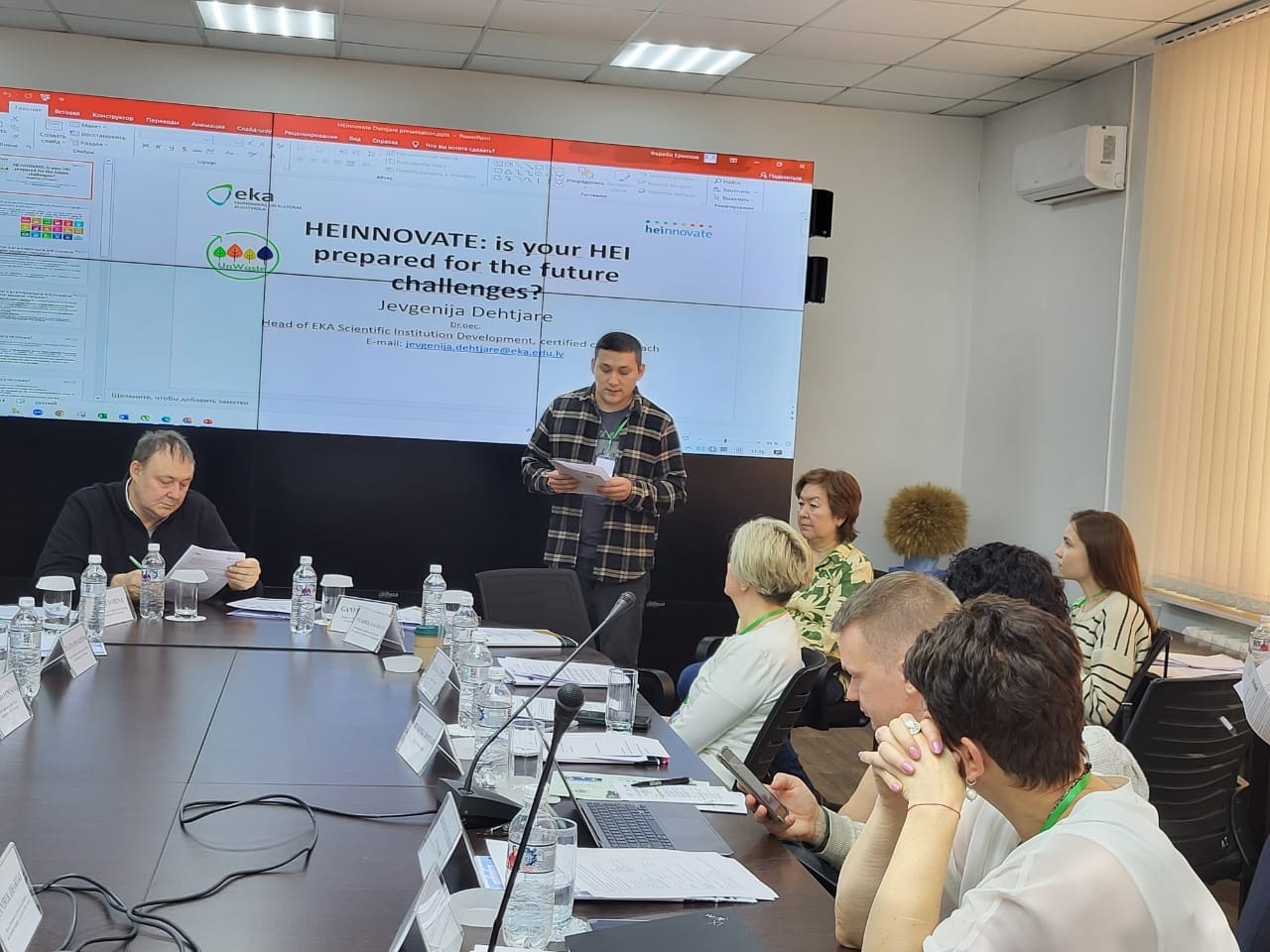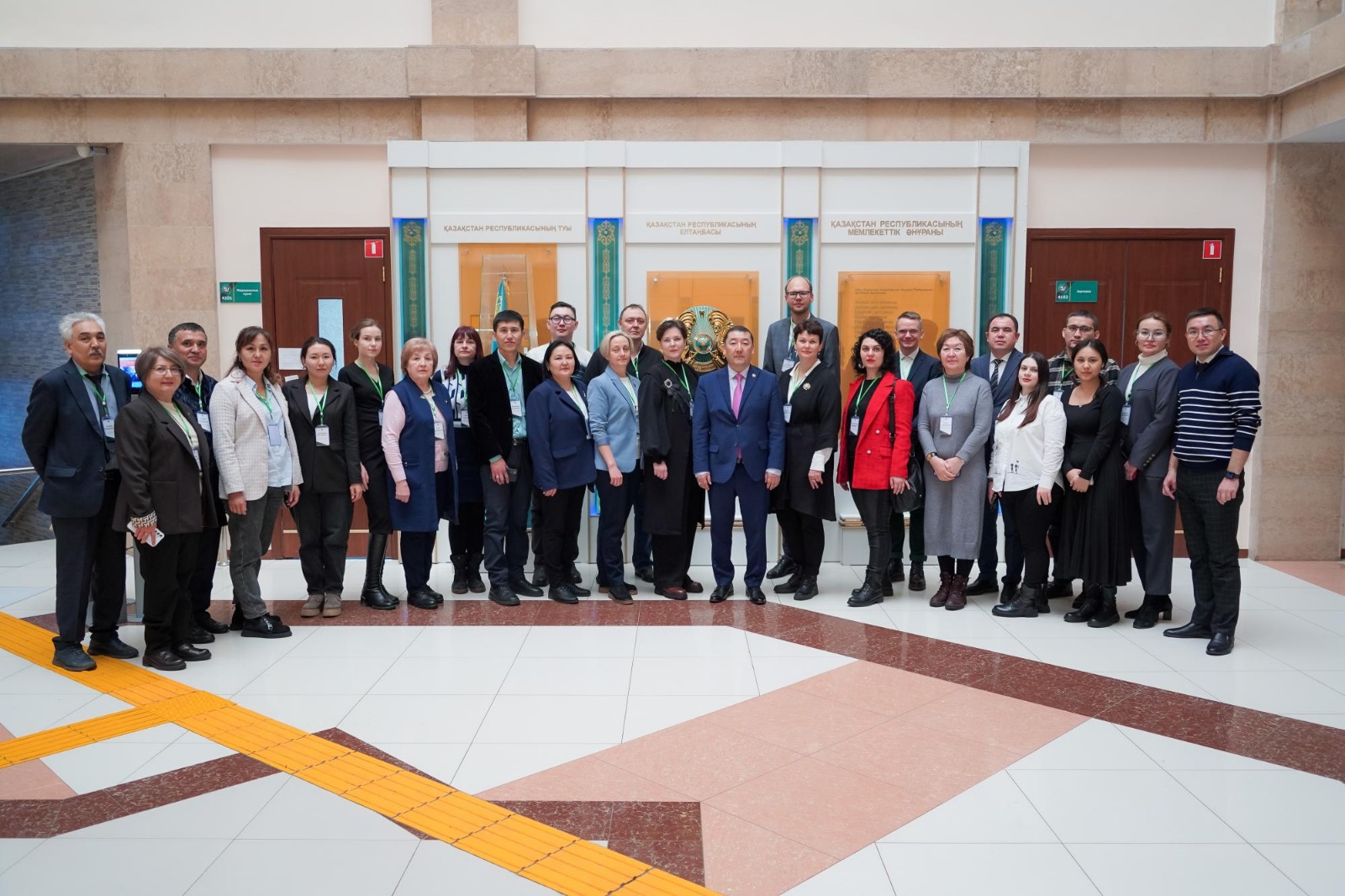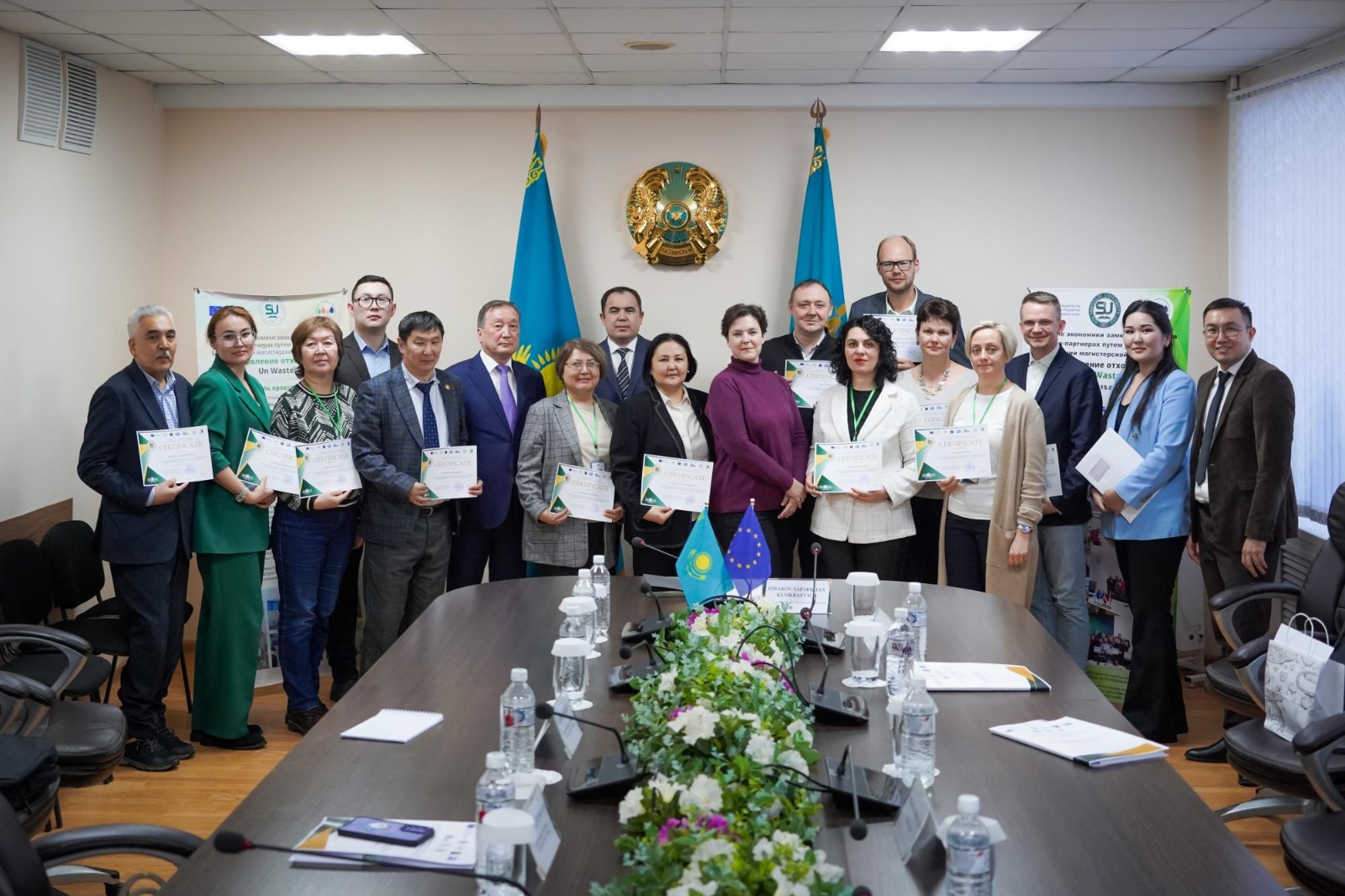As part of the Erasmus+ UnWaste project, from March 11 to March 15, 2024, a training seminar “Modern European waste management system” was held at the technical faculty of the Kazakh Agrotechnical Research University named after Saken Seifullin. The event was held under the guidance of teachers from Riga University EKA (Higher School of Economics and Culture), invited specifically to exchange experiences within the framework of the project. The leader of the ESA University research team was Professor Elena Titko. In addition to teachers and undergraduates of KazATIU, a working group from Kokshetaus University named after Sh. Ualikhanov, Kazakhstan, took part in the trainings.
Teachers from Kostanay Regional University named after Akhmet Baitursynuly participated - Yunusova Gulnara Batyrbekovna, Svirina Anna Andreevna and Koshkin Igor Vladimirovich, as well as two master's students from the Faculty of Agricultural Sciences of the educational program 7M05201-Geoecology and environmental management: Nurmukhambetov Murat and Krivopusk Ksenia.
The seminar participants were presented with lectures and seminars, including, for example, a lecture by Evgenia Dekhtyare, Doctor of Economics, head of the development department of a scientific institute at EKA University, on the topic “HEInnovate Global World Megatrends and the Circular Economy”, a lecture by Tatyana Tambovtseva, guest professor at EKA University “ Theoretical and practical aspects of the circular economy” and others. HEInnovate is an initiative of the European Commission's Directorate-General for Education and Culture in partnership with the OECD. At the end of all lectures, discussions were held, during which all participants in the seminar were asked to conduct analyzes and discussions, indicating strengths and problem areas, and suggesting ways to increase activity in the areas being studied. Representatives of each university reported on the results of their research and received valuable recommendations from specialists.
In the afternoon, the seminar participants went on excursions, visiting significant places in the capital and innovative enterprises in Astana in the field of waste disposal and recycling.
At the end of the seminar, participants were awarded certificates.
All participants expressed deep satisfaction with the training, hoping for further cooperation.
